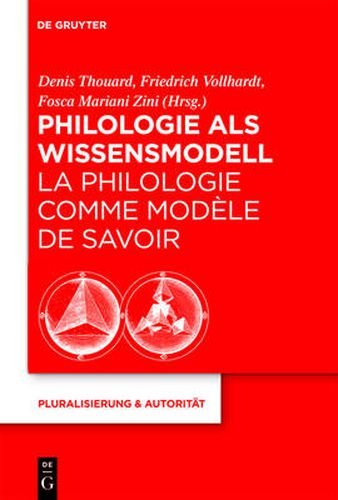Readings Newsletter
Become a Readings Member to make your shopping experience even easier.
Sign in or sign up for free!
You’re not far away from qualifying for FREE standard shipping within Australia
You’ve qualified for FREE standard shipping within Australia
The cart is loading…






This title is printed to order. This book may have been self-published. If so, we cannot guarantee the quality of the content. In the main most books will have gone through the editing process however some may not. We therefore suggest that you be aware of this before ordering this book. If in doubt check either the author or publisher’s details as we are unable to accept any returns unless they are faulty. Please contact us if you have any questions.
While philosophy even up until Newton described scientific effort, in the Early Modern Age philology was understood in very different ways: as universal knowledge of all that is conveyed by language, but also as technical analysis of written documents or as collection of knowledge in the form of an encyclopedia. This book attempts to illuminate the different aspects in more detail. In order to understand the significance and consequences of the philologization of our cultural history, one should first focus on the intellectual gesture of which philology bears witness, such as the development of critical activity .
$9.00 standard shipping within Australia
FREE standard shipping within Australia for orders over $100.00
Express & International shipping calculated at checkout
This title is printed to order. This book may have been self-published. If so, we cannot guarantee the quality of the content. In the main most books will have gone through the editing process however some may not. We therefore suggest that you be aware of this before ordering this book. If in doubt check either the author or publisher’s details as we are unable to accept any returns unless they are faulty. Please contact us if you have any questions.
While philosophy even up until Newton described scientific effort, in the Early Modern Age philology was understood in very different ways: as universal knowledge of all that is conveyed by language, but also as technical analysis of written documents or as collection of knowledge in the form of an encyclopedia. This book attempts to illuminate the different aspects in more detail. In order to understand the significance and consequences of the philologization of our cultural history, one should first focus on the intellectual gesture of which philology bears witness, such as the development of critical activity .